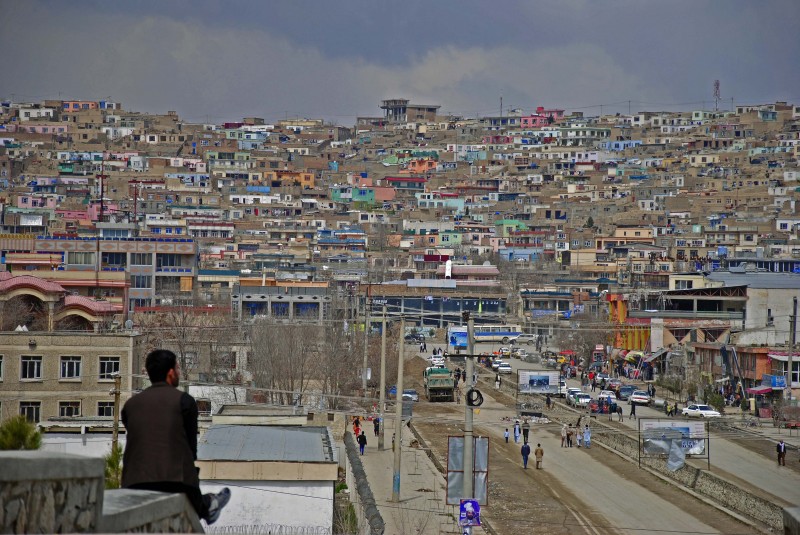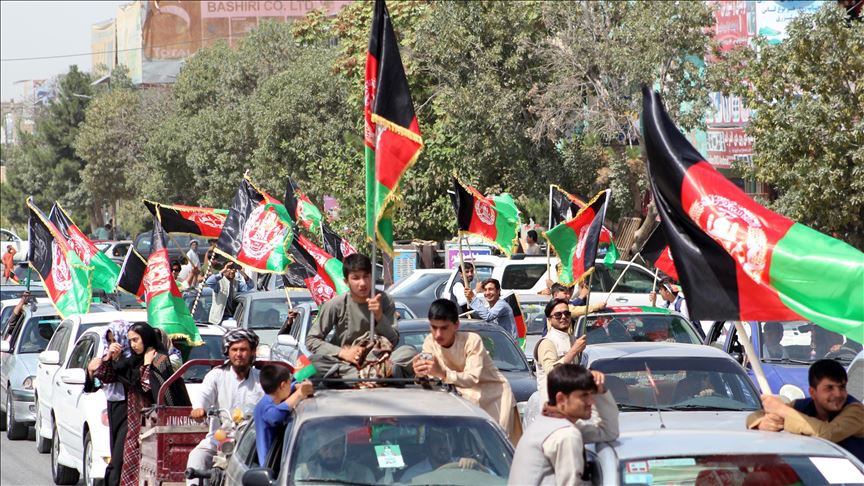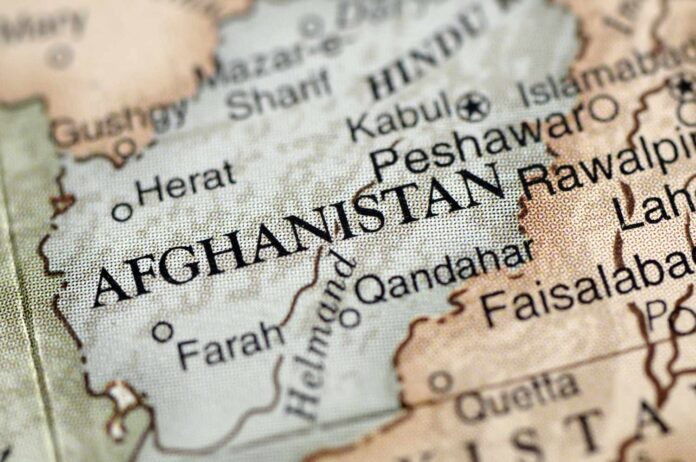Are you an adventure seeker looking for a destination off the beaten path? Look no further than Afghanistan! With stunning natural beauty, rich cultural heritage, and warm hospitality, Afghanistan is a destination that will leave a lasting impression on any traveler. However, before embarking on your journey, it’s important to know the ins and outs of Afghanistan travel. This comprehensive guide will cover everything from visas to health and safety, so you can have a safe and enjoyable trip.

Money
The official currency in Afghanistan is the Afghan afghani (AFN). Credit cards are not widely accepted, so it’s best to carry cash. ATMs are available in major cities like Kabul and Herat, but they may not always be reliable or secure. Be sure to exchange money at banks or reputable exchanges, as counterfeiting is common.

Language
The official languages of Afghanistan are Pashto and Dari, both of which are Indo-European languages. English is not widely spoken outside of the capital city, so it’s helpful to learn some basic phrases in either Pashto or Dari.

Religion
Islam is the dominant religion in Afghanistan, and it plays a significant role in daily life. Respect for Islamic customs and traditions is essential for travelers in Afghanistan. Dress conservatively and remove shoes before entering mosques or other religious buildings.

What To Wear In Afghanistan
It’s important to dress modestly in Afghanistan, especially for women. Women should wear loose-fitting clothing that covers their arms and legs, as well as a headscarf. Men should also dress conservatively, avoiding shorts or sleeveless shirts.

For Women Traveling Afghanistan
Traveling as a woman in Afghanistan can be challenging, but it’s not impossible. It’s crucial to dress conservatively and avoid being alone in public places. Women should also exercise caution when interacting with local men, as unwanted attention is common.

For Men Traveling Afghanistan
Men should also dress conservatively and avoid drawing unwanted attention to themselves. It’s important to be respectful of cultural traditions and customs, especially when interacting with women.

Best Time For Afghanistan Travel
The best time to visit Afghanistan is during the spring (March to May) or fall (September to November) when the weather is mild and dry. Summers can be scorching hot, while winters can be bitterly cold, especially in mountainous regions.
Getting In
The easiest way to enter Afghanistan is by air, with Kabul International Airport being the main entry point. Land border crossings are also possible from neighboring countries like Pakistan and Iran, but they can be unreliable and dangerous.
Afghan Land Border Crossings From My Personal Experience
Crossing land borders in Afghanistan can be a daunting experience, but it’s not impossible. It’s best to hire a reputable guide or driver who knows the area well. Some popular border crossings include Torkham (Pakistan), Islam Qala (Iran), and Hairatan (Uzbekistan).
Visas
Visas are required for all foreign visitors to Afghanistan. They can be obtained at Afghan embassies or consulates abroad, or upon arrival at the airport or major land borders. It’s essential to have all necessary documentation and permits in order to apply for a visa.

What You Will Need To Apply
To apply for an Afghan visa, you’ll need a passport that is valid for at least six months beyond your intended stay, as well as two passport-sized photos and a completed application form. You may also need a letter of invitation from a sponsor in Afghanistan or other supporting documents.
Permits
Certain areas of Afghanistan require special permits for travelers, especially those outside of major cities. These permits may be obtained through Afghan government offices or local authorities.
Getting Around
Travel within Afghanistan can be challenging, but there are several options available. Domestic flights are available between major cities, while private taxis and buses are also common. It’s important to be aware of security checkpoints and roadblocks, as they can cause delays or detours.

Checkpoints
Checkpoints are a common sight in Afghanistan, especially in areas with high levels of conflict. They are manned by Afghan security forces and may require travelers to show identification or undergo searches. It’s important to remain calm and follow instructions at all times.
By Flight
Domestic flights within Afghanistan are operated by Ariana Afghan Airlines and Kam Air. Flights can be booked online or through travel agents, but schedules may change frequently due to security concerns.

Afghanistan Travel Insurance
Travel insurance is highly recommended for anyone traveling to Afghanistan. It should cover medical expenses, emergency evacuation, and repatriation in case of an emergency. Be sure to read the policy carefully and understand what is covered and what is not.
Food
Afghan cuisine is a blend of Middle Eastern, South Asian, and Central Asian flavors. Rice, meat, and vegetables are staples of the Afghan diet. Street food is also common, but it’simportant to be cautious of food safety and hygiene. Drink only bottled or boiled water and avoid raw fruits and vegetables that may have been washed in contaminated water.

Where To Travel In Afghanistan
Afghanistan is a vast country with much to explore. Here are some of the top destinations to visit:
Kabul
As the capital city of Afghanistan, Kabul is a bustling metropolis that offers a glimpse into modern Afghan life. Highlights include the Kabul Museum, Babur’s Gardens, and the famous Chicken Street market.

Istalif
This charming village is known for its pottery and handicrafts and is a popular day trip from Kabul.

Parwan
Parwan province is home to the historic Panjshir Valley, as well as the ancient Buddhist monastery of Takht-e-Rostam.

Herat
Located in western Afghanistan, Herat is a cultural hub with a rich history. Must-sees include the Herat Citadel, the Friday Mosque, and the Tomb of Khwaja Abdullah Ansari.

Kandahar
Kandahar is the second-largest city in Afghanistan and is known for its lively bazaars and historic sites like the Shrine of the Cloak.

Wakhan Corridor
The Wakhan Corridor is a narrow strip of land in northeastern Afghanistan that offers stunning mountain scenery, hot springs, and opportunities for trekking.

Kunduz
Located in northern Afghanistan, Kunduz is a city with a long and fascinating history. Highlights include the National Museum of Afghanistan and the Bagh-e-Sultan gardens.

Baghlan
Baghlan province is home to the ancient city of Surkh Kotal, as well as several stunning natural attractions like the Band-e-Amir lakes.

Minaret of Jam
This UNESCO World Heritage Site is an 800-year-old minaret located in western Afghanistan.

Wardak
Wardak province is home to several historic sites, including the ancient city of Ghazni and the Band-e-Qargha dam.

Ghazni
The city of Ghazni is a UNESCO World Heritage Site with a rich history dating back to the 7th century. Highlights include the Citadel of Ghazni and the Tomb of Sultan Mahmud.

Jalalabad
Located in eastern Afghanistan, Jalalabad is known for its scenic beauty and outdoor recreation opportunities, including hiking and rock climbing.

Laghman
Laghman province is home to several historic sites, including the ruins of the ancient city of Surkh Kotal and the Alishang Bridge.

Kunar
Kunar province is home to several stunning natural attractions, including the Pech Valley and the Asadabad Waterfall.

Nuristan
Nuristan province is located in northeastern Afghanistan and is known for its stunning mountain scenery and traditional way of life.

Trekking In Afghanistan
Afghanistan offers some of the most spectacular trekking opportunities in the world. Popular trekking routes include the Wakhan Corridor, the Hindu Kush Mountains, and the Panjshir Valley. It’s important to hire a reputable guide and obtain any necessary permits before embarking on a trek.
Afghan Holidays Festivals
Afghanistan celebrates several holidays and festivals throughout the year, including:
Eid al-Fitr
The end of Ramadan, a month-long period of fasting and reflection.

Eid al-Adha
A festival that commemorates Abraham’s willingness to sacrifice his son.

Nowruz
The Persian New Year, celebrated on the spring equinox.

Independence Day
Celebrated on August 19th, marking Afghanistan’s independence from British colonial rule in 1919.


Tour Operators Guides
It’s recommended to hire a reputable tour operator or guide when traveling in Afghanistan. They can provide valuable insight into local customs and traditions, as well as ensure your safety and security.

Afghanistan Travel Budget
Afghanistan is an affordable destination for travelers on a budget. However, it’s important to factor in the cost of permits, visas, and travel insurance when budgeting for your trip. Accommodations can range from budget guesthouses to upscale hotels, depending on your preferences.
Packing List
When packing for Afghanistan, be sure to include:
- Conservative clothing that covers your arms and legs
- A headscarf (for women)
- Comfortable shoes for walking
- Sunscreen and sunglasses
- Insect repellent
- A first aid kit
- Cash in small denominations
Guidebooks
There are several guidebooks available for travelers to Afghanistan, including Lonely Planet and Bradt Guides. These books offer valuable insight into local customs and traditions, as well as practical information about visas, permits, and travel logistics.
Internet Mobile In Afghanistan
Internet and mobile service is available in major cities like Kabul and Herat. However, service can be unreliable and slow at times. Be sure to purchase a local SIM card if youneed to stay connected while traveling in Afghanistan.
WiFi
WiFi is available in some hotels and cafes in Kabul and other major cities. However, it’s important to be cautious when using public WiFi networks, as they may not be secure.
Mobile
Mobile service is available in Afghanistan through several providers, including Afghan Wireless and Roshan. It’s important to purchase a local SIM card and top-up credit as needed.
Health Safety
Afghanistan can be a challenging destination from a safety and security standpoint. Travelers should exercise caution at all times and avoid large crowds or political demonstrations. It’s also important to be aware of local customs and traditions, particularly when visiting religious sites.
Safety
Crime rates in Afghanistan are generally low, but travelers should take precautions to ensure their safety while traveling. Be sure to secure your valuables and avoid walking alone at night. It’s also recommended to hire a reputable driver or use a trusted taxi service.
Health
Travelers to Afghanistan should consult with their doctor before traveling and ensure they are up-to-date on routine vaccinations. It’s also recommended to get vaccinated for hepatitis A and B, typhoid, and rabies. Travelers should also take precautions to avoid foodborne illness by drinking only bottled or boiled water and avoiding raw fruits and vegetables that may have been washed in contaminated water.
See more:
Conclusion
Traveling to Afghanistan can be an incredibly rewarding experience, offering a glimpse into a rich cultural heritage and stunning natural beauty. However, it’s important to exercise caution and be prepared for the challenges that come with travel in this part of the world. With proper planning and precautions, travelers can enjoy a safe and memorable trip to Afghanistan.


















